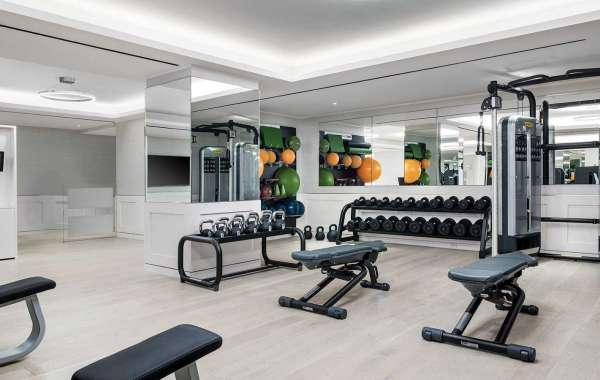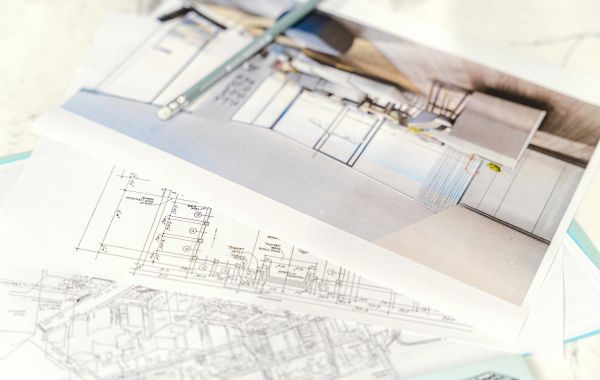Three Types of Home Gyms
There are three basic types of home gym:
- Machine
- Free weight
- Plate loaded machine
Each type comes with its own advantages and disadvantages, and each is suited to different workout needs and styles. Determining the best home gyms for your consideration requires some research and information gathering to narrow the list to a few you can try out in person.
Let's take a look at each of these in turn.
About Machine Home Gyms
Machine home gyms are constructed of a single steel frame. Attached to this frame are different types of training equipment that work different parts of the body with different motions and exercises.
Machine home gyms generally fall into three categories:
Traditional - This is the most common type of machine home gym. It contains multiple stations and functions, such as a lat pull down, leg extension and leg curl, press, and bench. Most also have an adjustable weight stack and may also have a low row station, too.
Power rod - This category uses flexible rods to create resistance and weight load during your workout. The rods are of varying stiffness and thus create various levels of resistance. The most well known power rod home gym is the Bow flex brand.
Gravity resistance - This category of machine home gyms is typically lightweight, portable, and of somewhat questionable quality. The machine has a metal frame that is adjustable, and a gliding bench or board that holds your body during exercises. The weight of your body creates the resistance, as you pull on cables to glide yourself up and down various inclines and in various positions.
About Free Weight Home Gyms
A free weight home gym consists of several separate pieces of equipment that are not attached together in any way. The pieces are used in different combinations and different frequencies to achieve training goals. Weights are added, dropped or adjusted by hand, using whichever bar you have selected for a particular exercise.
Free weight home gyms generally fall into three categories:
Traditional - This is the most common category and considered by many to be the best home gyms for multi-purpose workouts. The specific components may vary, but usually include at least one barbell, two dumbbells, a variety of weight plates, a bench and rack, and collars to prevent weight plates from falling.
Power rack - This category is generally for home gyms that focus on heavy exercises. The power rack itself is free standing and holds the barbell. The user adjusts the height of the rack so that he or she squats slightly to place the barbell across the top of the back, then stands up straight and moves back to commence the exercise. When the exercise is complete, the user simply moves forward again and places the barbell back in the rack.
Power cage - This category of equipment is used in much the same manner as a power rack, but with a slight difference. The power cage has rectangular sides for holding the barbell, which means the user cannot move as far forward or backward as they can with power rack equipment.
About Plate Loaded Machine Home Gyms
A plate loaded machine home gym combines elements of both a free weight home gym and a standard machine home gym. It may have several stations and functions like a machine home gym, but instead of having a standard weight stack it requires you to add and subtract weight by hand, just like with a free weight home gym.
There are three common categories of plate loaded machine home gyms:
Machine without weight stacks - This category is for equipment that is essentially a standard machine home gym with multiple stations, but with the exception that weights are loaded manually.
Smith machine - This category is a machine-form of a power rack or a power cage. Instead of the user moving backward to perform the actual exercises, a smith machine limits the motion to straight up and down without any forward or backward movement.
Combination Smith machine - This category combines the elements of a standard smith machine with some of the things found on a machine gym, such as a lat pull down or other similar function.
Which Gym is Best For You?
The best home gyms are those that have the features and functions that match your personal fitness goals and meet other specific requirement.
For example, if your goal is to build gigantic muscles then you should consider a smith machine that allows you to do squats, dead lifts, and perform both with a great deal of weight. If your goals are more modest, though, then a standard machine home gym should be sufficient. You might even prefer a gravity resistance home gym if you are more interested in overall body toning rather than building up muscle bulk.
Of course, cost is a big consideration, and as with most other types of fitness equipment, you will tend to get a level of quality that is in line with the amount of money that you spend. Many people opt for a short term membership at a gym or fitness club so that they can try several types of machines to see which ones they like best.
Still not sure which is right for you? Think about buying an inexpensive home gym of whatever type you like the best so you can try it out without making a huge financial commitment. If you are ready to take the plunge and invest in a high quality, serious fitness home gym, though, expect to spend at least $500 and more likely around $1,000 or more.
Before making any purchase, it is critical that you measure the space where you plan to put your home gym so you know exactly how big your home gym should be. Remember to allow enough space around the perimeter of the home gym so that you can easily move around and access the equipment.







